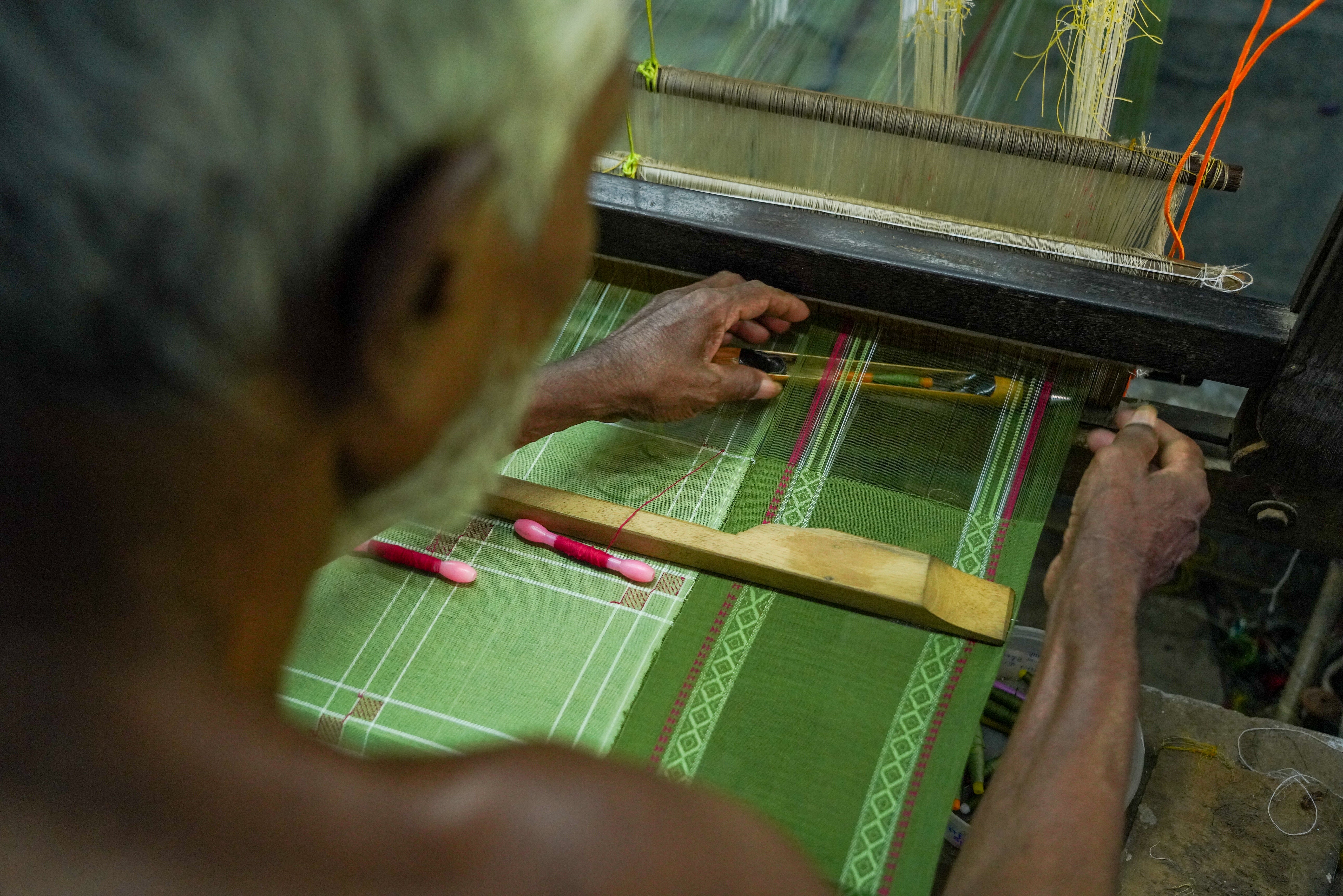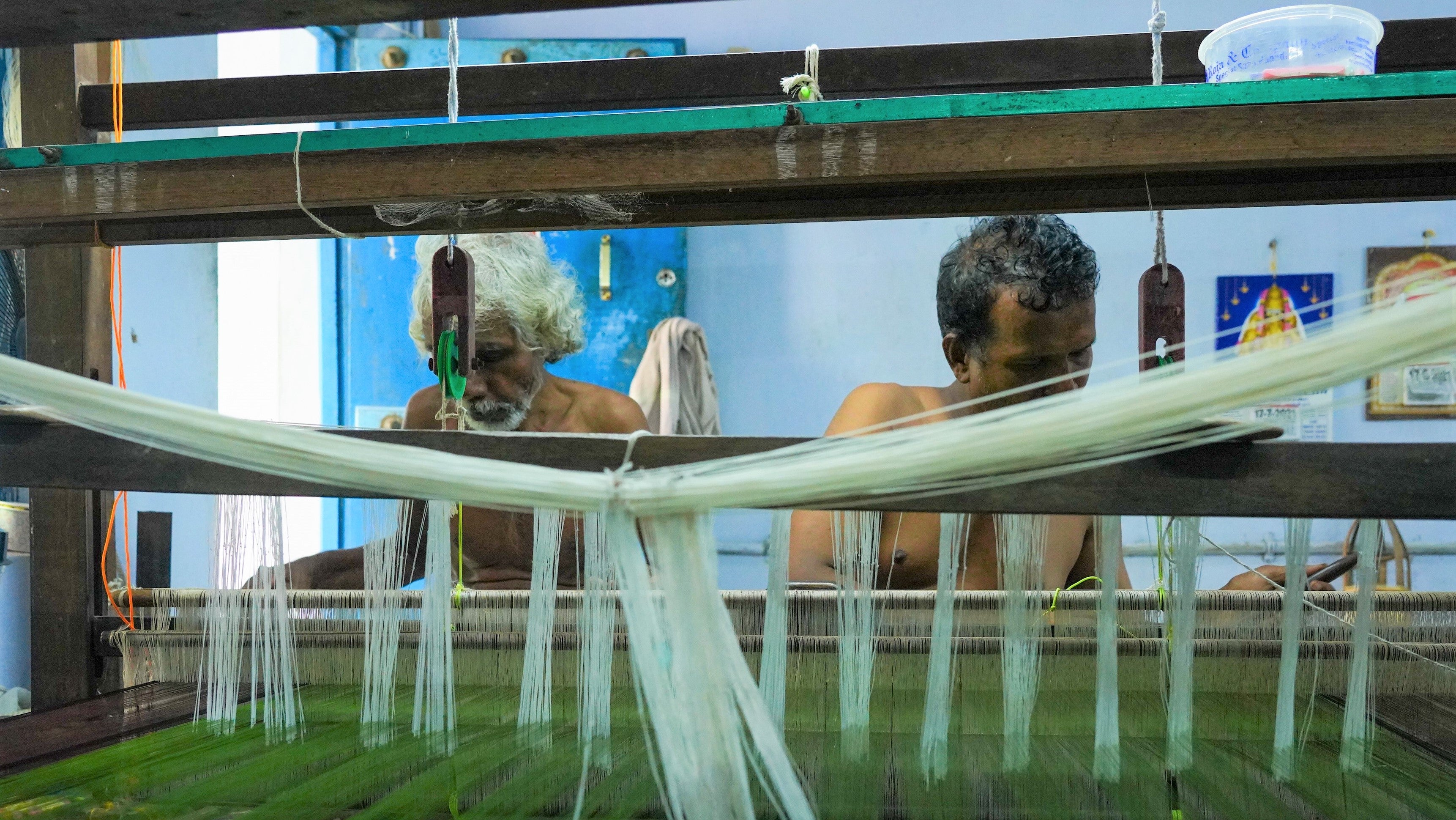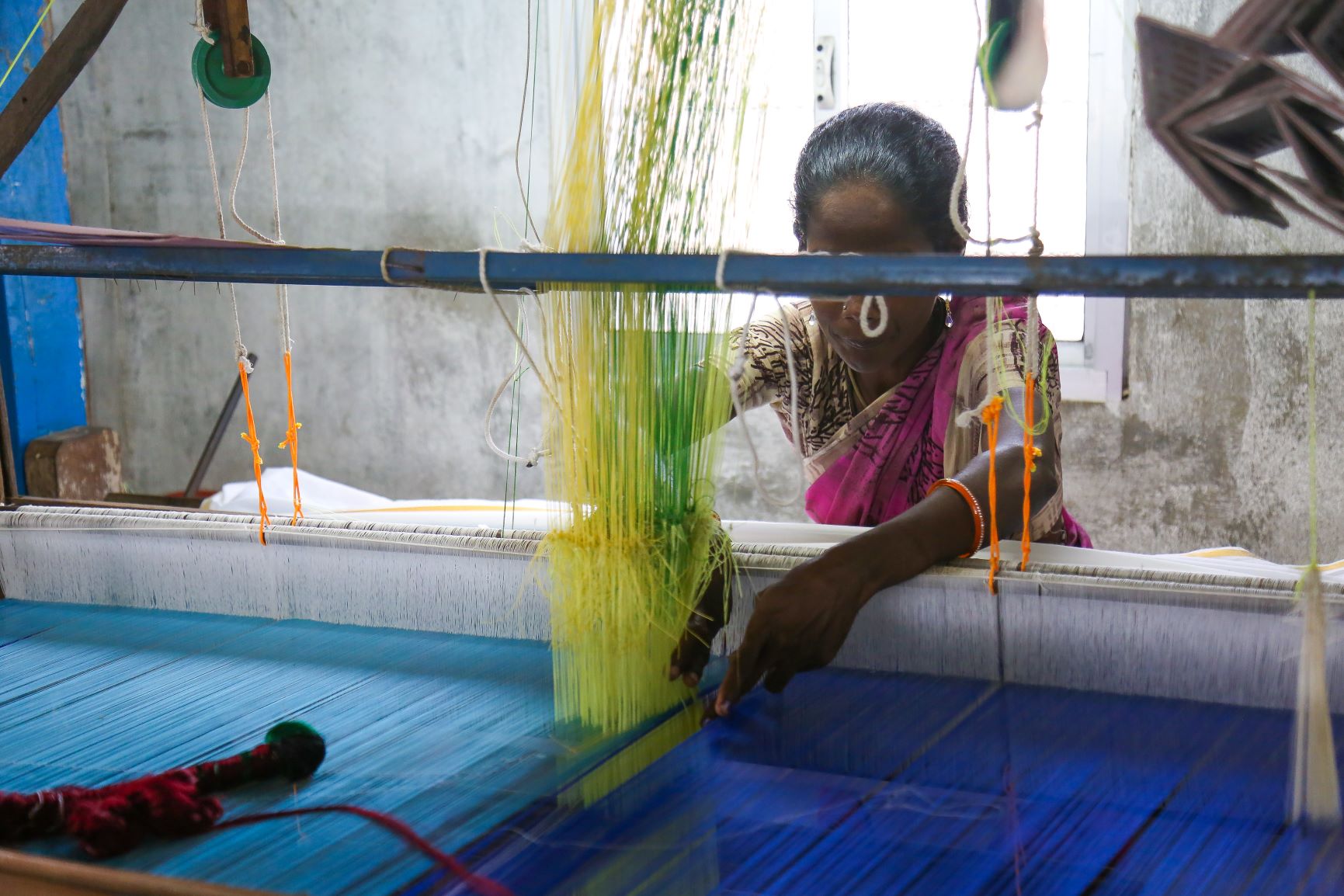
Karpasi: Parvai's Cotton Weaving Initiative in Kanchipuram
Why cotton?

Cotton is one of the oldest fabric known to mankind. Early humans have been picking & weaving with cotton since 5000 BC and it certainly has the potential to be cruelty-free, sustainable, renewable & biodegradable. While it has the potential to be all of this and more, commercially produced cotton is far from sustainable. Not only does cotton farming call for massive amounts of pesticides, but the process also consumes a lot of fresh water. The other aspect to consider is how much natural fibers need to grown, produced & processed to clothe our burgeoning population & greed to amass more clothes than necessary. We are not sure if we are ready yet to make the switch but one can always take baby steps.
Apart from pure silks, (which aren’t cruelty-free), cotton & linen form the holy trio of natural fabrics that are completely biodegradable. And to produce enough cotton to clothe our population, we are looking at a number upwards 150 billion pounds. Can all this demand be met by sustainably grown cotton & linen? Maybe not yet, but where does one really start? Long before Parvai took shape, our founders toured the length & breadth of the nation looking for sustainable cotton sources. We were told organic cotton is a jargon and we must work with what we can find. But the universe always has a master plan. Our roads led us to Ethicus and we embarked on something that brings us much pride, satisfaction & peace - Karpasi.
All about Karpasi:

Karpasi is an ode to pursuing the truth. Karpasi taught us so much about patience & hard work. It’s our homage to Mother Earth. It’s our first step towards recognizing the potential of a mere thought process. Karpasi is our organic cotton range, woven completely by hand, at our looms in Kanchipuram.
Why is silk valued more than cotton? We understand when times were different and one had to choose between cotton and silk, cotton simply lasted longer, aged better, was sturdy, easier to grow (compared to harnessing silk from wild cocoon) and was easier to work in. Today commercial silk is cheaper and easily accessible and organic cotton is rare and precious and yet cotton is perceived as cheap while silk is considered premium. Times have changed. The upper class no longer sit in palaces, attended by servants & slaves. We live in times where finding good cotton is as hard as finding good silk. Yet weave after weave invests in silk and not gold. To many of us good cotton is the ultimate luxury today. Good cotton can be worn without a second thought, keeps the person comfortable and happy. So we ask again why is cotton considered less premium?
What if we told you a hank of organic cotton costs much more than Chinese silk available in the market? What if finding organic cotton is harder than silk? We decided to find out for ourselves why Kanchipuram only produces silks. Well, kanchi cotton sold in the market isn’t quite like the Kanchipuram silk saris so our quest was to ask weavers who woven Kanchipuram silk saris why they would not make these beautiful designs in cotton. While Gadwal was well known for its cottons, Kanchipuram has always been recognized for its silk.
We asked these questions to our weavers and their reply left us shocked. Cotton saris can of course be woven in Kanchipuram. And one can attempt complex designs with pure zari - however, people would rather pay for silks and the market trends decide what gets woven. So when we asked our weavers if they would be willing to weave cotton korvai saris that mimic the grandeur and design of silk saris, they were excited.
Thus began a dream - to weave cotton korvai saris with organic cotton & pure zari, that can give your silks a run for their money.
Karpasi was born because we dared to ask these questions and boy, we are glad we did!
The Korvai Connect:

Although today the format of korvai saris is more popular in silks, the cotton korvaies predated the silk counterparts. When Parvai set up looms in Kanchipuram, our aim was to keep the looms operational and provide a steady source of income to our weavers. We also wanted to experiment with various fabrics and textures that are not woven much due to lack of patronage. One such project was Karpasi.
Even though there is enough documentation on cotton korvai saris, proper cotton korvai is not woven & easily available anymore. Assisted korvaies are popular but the kind of saris we envisioned were saris that we would wear to a wedding. Sarees with beautiful Kanchipuram motifs and pure zari. That is how Karpasi began to take shape.
We found inspiration for our cotton korvai in our silks. Every time we wove a silk saree we would wonder how this very motif would look like in cotton and thus began a series of experiments with colors, zari, motifs & combinations. We sourced organic cotton for these saris from Appachi Cotton, Pollachi & pure zari that goes into our silk saris also goes into our cottons. Our Karpasi saris are luxurious, well-woven, organic cotton saris with korvai borders. No compromises were made with respect to how these saris were woven, in fact, the same weavers & master weavers who work on our silks also work on these saris.
To be continued....

